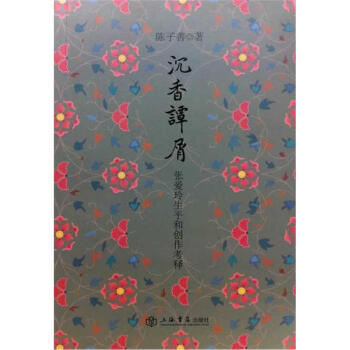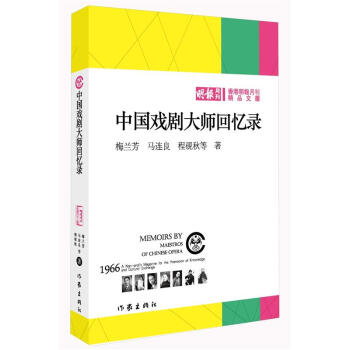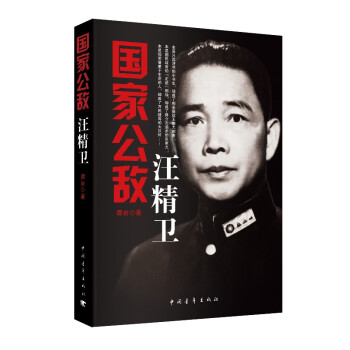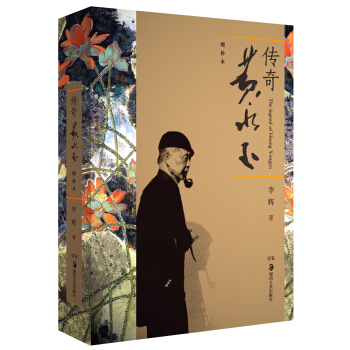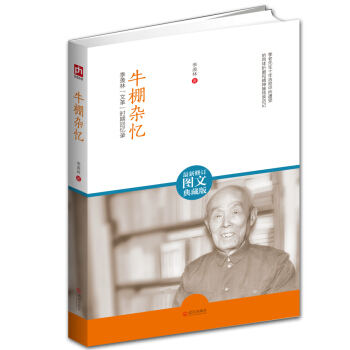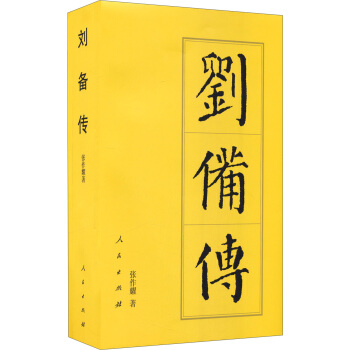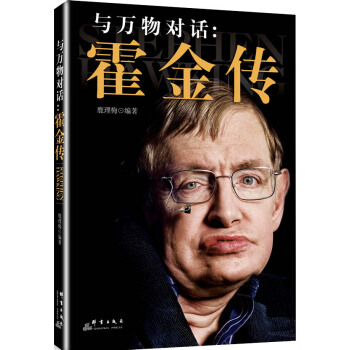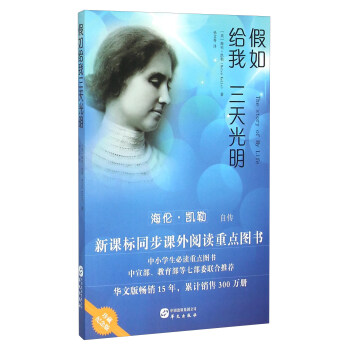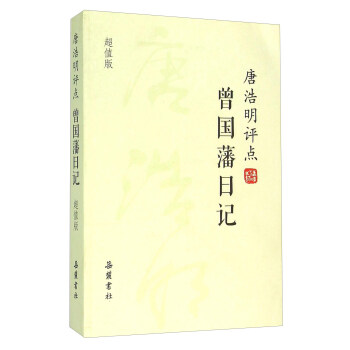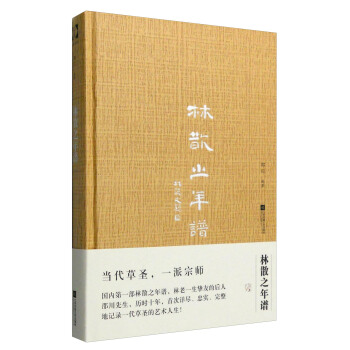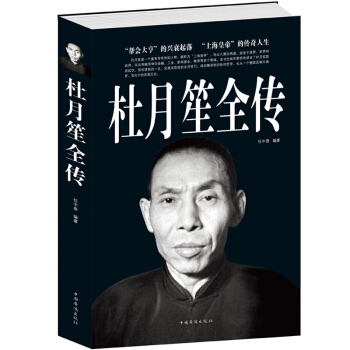具体描述
内容简介
缪钺,字彦威,江苏溧阳人,生于河北迁安,居家保定。著名历史学家、文学家、教育家。诗词、书法亦堪称大家。1995年1月6日病逝于成都。
《缪钺先生编年事辑》尽可能详尽准确地收集使用有关缪钺先生生平、思想、著述、社交以及社会活动等方面的资料,记述缪钺先生一生的行迹。 目录
卷一 1904-1940年
清光绪三十年甲辰(1904年)
清光绪三十一年乙巳(1905年) 先生一岁
清光绪三十二年丙午(1906年) 先生二岁
清光绪三十三年丁未(1907年) 先生三岁
清光绪三十四年戊申(1908年) 先生四岁
清宣统元年己酉(1909年) 先生五岁
清宣统二年庚戌(1910年) 先生六岁
清宣统三年辛亥(1911年) 先生七岁
中华民国元年壬子(1912年) 先生八岁
中华民国二年癸丑(1913年) 先生九岁
中华民国三年甲寅(1914年) 先生十岁
中华民国四年乙卯(1915年) 先生十一岁
中华民国五年丙辰(1916年) 先生十二岁
中华民国六年丁巳(1917年) 先生十三岁
中华民国七年戊午(1918年) 先生十四岁
中华民国八年己未(1919年) 先生十五岁
中华民国九年庚申(1920年) 先生十六岁
中华民国十年辛酉(1921年) 先生十七岁
中华民国十一年壬戌(1922年) 先生十八岁
中华民国十二年癸亥(1923年) 先生十九岁
中华民国十三年甲子(1924年) 先生二十岁
中华民国十四年乙丑(1925年) 先生二十一岁
中华民国十五年丙寅(1926年) 先生二十二岁
中华民国十六年丁卯(1927年) 先生二十三岁
中华民国十七年戊辰(1928年) 先生二十四岁
中华民国十八年己巳(1929年) 先生二十五岁
中华民国十九年庚午(1930年) 先生二十六岁
中华民国二十年辛未(1931年) 先生二十七岁
中华民国二十一年壬申(1932年) 先生二十八岁
中华民国二十二年癸酉(1933年) 先生二十九岁
中华民国二十三年甲戌(1934年) 先生三十岁
中华民国二十四年乙亥(1935年) 先生三十一岁
中华民国二十五年丙子(1936年) 先生三十二岁
中华民国二十六年丁丑(1937年) 先生三十三岁
中华民国二十七年戊寅(1938年) 先生三十四岁
中华民国二十八年己卯(1939年) 先生三十五岁
中华民国二十九年庚辰(1940年) 先生三十六岁
卷二 1941-1949年
中华民国三十年辛巳(1941年) 先生三十七岁
中华民国三十一年壬午(1942年) 先生三十八岁
中华民国三十二年癸未(1943年) 先生三十九岁
中华民国三十三年甲申(1944年) 先生四十岁
中华民国三十四年乙酉(1945年) 先生四十一岁
中华民国三十五年丙戌(1946年) 先生四十二岁
中华民国三十六年丁亥(1947年) 先生四十三岁
中华民国三十七年戊子(1948年) 先生四十四岁
中华民国三十八年己丑(1949年) 先生四十五岁
卷三 1950-1958年
1950年庚寅 先生四十六岁
1951年辛卯 先生四十七岁
1952年壬辰 先生四十八岁
1953年癸巳 先生四十九岁
1954年甲午 先生五十岁
1955年乙未 先生五十一岁
1956年丙申 先生五十二岁
1957年丁酉 先生五十三岁
1958年戊戌 先生五十四岁
卷四 1959-1977年
1959年己亥 先生五十五岁
1960年庚子 先生五十六岁
1961年辛丑 先生五十七岁
1962年壬寅 先生五十八岁
1963年癸卯 先生五十九岁
1964年甲辰 先生六十岁
1965年乙巳 先生六十一岁
1966年丙午 先生六十二岁
1967年丁未 先生六十三岁
1968年戊申 先生六十四岁
1969年己酉 先生六十五岁
1970年庚戌 先生六十六岁
1971年辛亥 先生六十七岁
1972年壬子 先生六十八岁
1973年癸丑 先生六十九岁
1974年甲寅 先生七十岁
1975年乙卯 先生七十一岁
1976年丙辰 先生七十二岁
1977年丁巳 先生七十三岁
卷五 1978-1985年
1978年戊午 先生七十四岁
1979年己未 先生七十五岁
1980年庚申 先生七十六岁
1981年辛酉 先生七十七岁
1982年壬戌 先生七十八岁
1983年癸亥 先生七十九岁
1984年甲子 先生八十岁
1985年乙丑 先生八十一岁
卷六 1986-1995年
1986年丙寅 先生八十二岁
1987年丁卯 先生八十三岁
1988年戊辰 先生八十四岁
1989年己巳 先生八十五岁
1990年庚午 先生八十六岁
1991年辛未 先生八十七岁
1992年壬申 先生八十八岁
1993年癸酉 先生八十九岁
1994年甲戌 先生九十岁
1995年乙亥 先生九十一岁
附编
附录一 缪钺先生七十年学术生涯述略
附录二 陈寅恪先生对缪钺先生的学术影响
主要参考文献
后记 前言/序言
《缪钺先生编年事辑》是一部以严谨考据为基础, meticulously reconstructs the life and scholarly journey of the esteemed scholar, Mr. Miao Yue. This comprehensive compilation transcends a mere biographical account, delving deeply into the intellectual currents and historical contexts that shaped Mr. Miao’s illustrious career. It serves as an invaluable resource for anyone seeking to understand the evolution of Chinese scholarship in the 20th century and beyond, through the lens of one of its most dedicated practitioners. The work meticulously charts Mr. Miao’s life chronologically, beginning with his formative years and early education. It situates his upbringing within the socio-political landscape of his time, highlighting the influences that likely ignited his lifelong passion for learning and historical inquiry. The narrative carefully reconstructs his academic path, detailing his enrollment in key educational institutions, the professors who mentored him, and the intellectual atmosphere that permeated these environments. This section offers a granular understanding of the foundational knowledge and analytical skills that Mr. Miao cultivated during his nascent scholarly development. As the compilation progresses, it meticulously documents Mr. Miao’s significant academic achievements and contributions. This includes a thorough examination of his major scholarly works, detailing their genesis, research methodologies, and their impact on the respective fields of study. The compilation does not merely list his publications but rather provides an in-depth analysis of their thematic concerns, theoretical frameworks, and the innovative approaches Mr. Miao employed. For instance, if Mr. Miao was a prominent historian, this section would meticulously explore his seminal works on specific dynasties or historical periods, dissecting his arguments, the primary sources he utilized, and how his interpretations challenged or advanced existing scholarship. The detailed exploration of his publications aims to showcase the depth and breadth of his intellectual engagement. Beyond his published works, The Chronological Records of Mr. Miao Yue meticulously records his involvement in academic institutions, research projects, and scholarly societies. This could include his tenure at universities, his leadership roles in research centers, and his participation in significant academic conferences. Each entry is supported by available documentary evidence, such as correspondence, official records, and contemporary accounts, ensuring a high degree of factual accuracy. This aspect of the compilation provides crucial insights into Mr. Miao’s role in shaping academic discourse and fostering intellectual exchange within the scholarly community. It illustrates his commitment to not only individual research but also to the collective advancement of knowledge. A significant portion of the compilation is dedicated to tracing Mr. Miao’s intellectual evolution. It meticulously maps the development of his scholarly interests and his engagement with various intellectual traditions. This involves analyzing the influences of earlier scholars, philosophers, and historical events on his thinking, as well as his own critical responses and original contributions. The compilation examines how his perspectives may have shifted over time, influenced by new discoveries, emerging research methodologies, or changing socio-historical circumstances. This longitudinal perspective is crucial for understanding the dynamic nature of intellectual growth and the continuous refinement of scholarly thought. The Chronological Records also offers a nuanced portrayal of Mr. Miao’s interactions with his contemporaries. It details his collaborations, intellectual dialogues, and even scholarly debates with other prominent figures in his field. These interactions are presented not as anecdotal trivia but as crucial moments that shaped his research and contributed to the broader intellectual landscape. By illuminating these relationships, the compilation provides a richer understanding of the collaborative and sometimes contentious nature of academic progress. It highlights the interconnectedness of scholarly endeavors and the ways in which ideas are exchanged, contested, and built upon. Furthermore, the compilation pays close attention to the historical context in which Mr. Miao’s life and work unfolded. It situates his academic pursuits within the broader currents of Chinese history, including periods of significant political upheaval, social transformation, and cultural resurgence. By interweaving his personal and professional trajectory with these larger historical forces, the compilation offers a compelling narrative of how external factors can shape an individual’s intellectual journey and, in turn, how scholars contribute to understanding and interpreting their times. This contextualization is vital for appreciating the significance and relevance of his scholarly output. The meticulous nature of The Chronological Records of Mr. Miao Yue is evident in its extensive use of primary source materials. These may include personal letters, diaries, manuscripts, archival documents, and oral histories where available. The compilation’s scholarly apparatus, including detailed annotations and bibliographical references, underscores its commitment to transparency and verifiability. This rigorous approach to source citation allows readers to trace the origins of information and engage critically with the presented material. It signifies a dedication to historical accuracy and scholarly integrity. In essence, The Chronological Records of Mr. Miao Yue is more than a biography; it is a scholarly undertaking that reconstructs the intellectual life of a significant figure. It provides a detailed framework for understanding Mr. Miao’s contributions to his field, his engagement with the intellectual currents of his time, and his enduring legacy. For scholars, students, and anyone interested in the history of Chinese thought and academia, this compilation stands as a testament to the power of meticulous research and dedicated scholarship. It offers a deep and multifaceted portrait of a scholar whose life and work continue to inspire and inform. The compilation aims to offer a comprehensive and nuanced understanding of Mr. Miao’s intellectual journey, his research methodologies, and his lasting impact on scholarship, presented in a manner that respects the reader’s intelligence and encourages thoughtful engagement with the subject matter. It is a scholarly endeavor that seeks to illuminate a significant intellectual presence through a detailed and contextually rich presentation of his life and works.
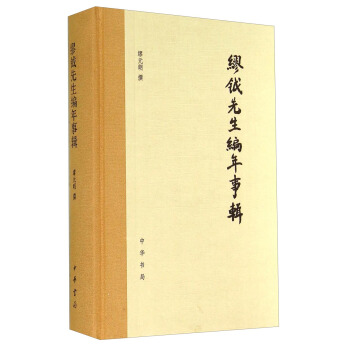


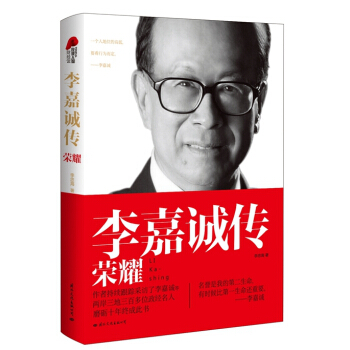
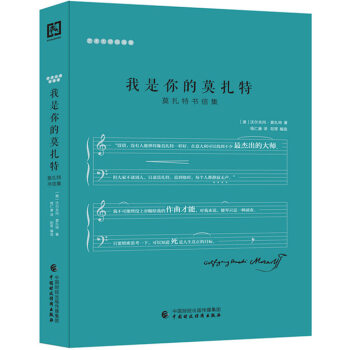
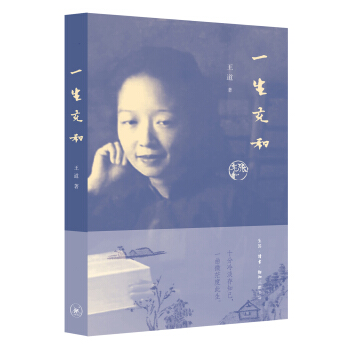
![约翰尼·德普传 [Johnny Depp] pdf epub mobi 电子书 下载](https://pic.windowsfront.com/12094112/5864c824N09d10ca8.jpg)
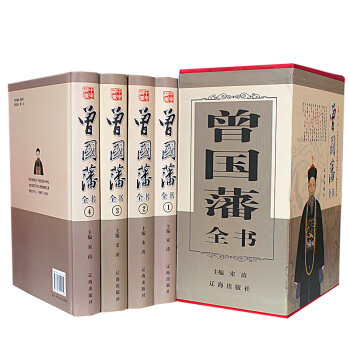
![一个德国人的故事:哈夫纳1914-1933回忆录 [Geschichte eines Deuts Chen Die Erinnerungen 1914~1933] pdf epub mobi 电子书 下载](https://pic.windowsfront.com/10198820/b7bc0a59-8d3e-4859-b5bd-a35d96976555.jpg)
